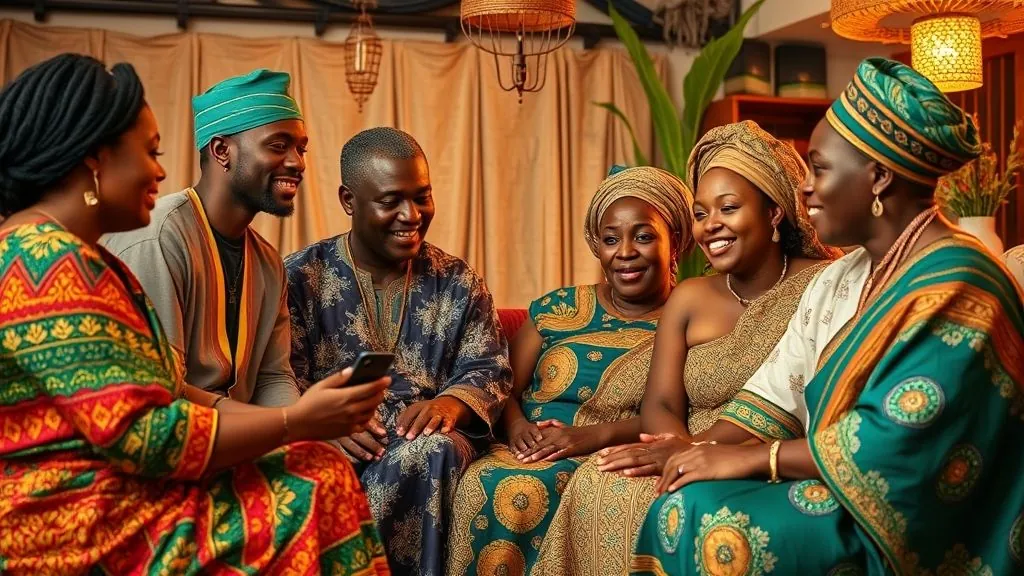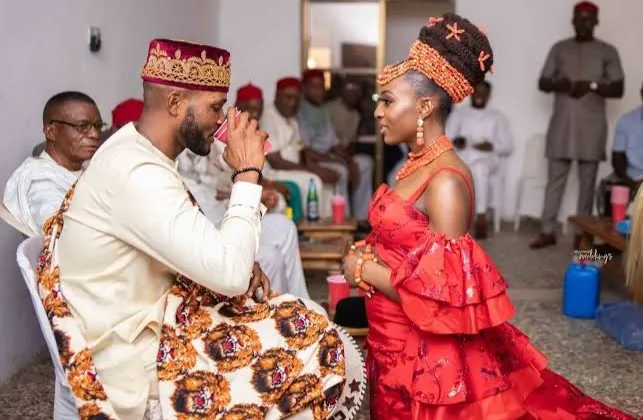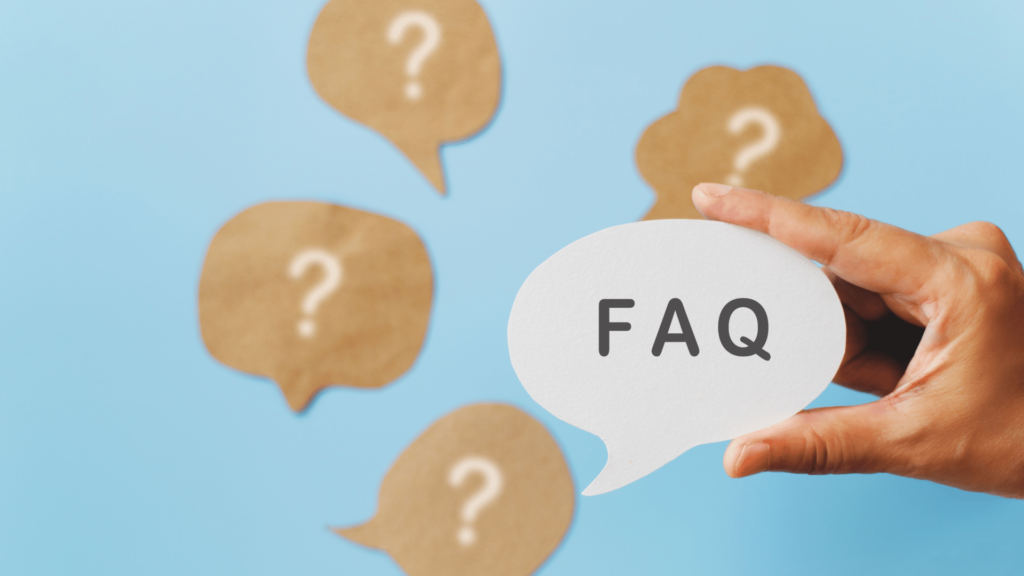Introduction
The role of family in Nigerian dating culture is central and often decisive in shaping relationships. Far from being just a private affair between two individuals, dating in Nigeria is deeply intertwined with family, tradition, and communal values. Families provide not just approval but guidance, protection, and social meaning to romantic relationships.

Key Features: Role of Family in Nigerian Dating Culture
- Families act as facilitators and gatekeepers in dating and marriage.
- Family approval is often a vital milestone for couples.
- Formal introduction ceremonies symbolize the union of two families.
- Extended family members influence decisions about partner suitability.
- Family expectations affect compatibility assessments beyond individual preferences.
- Balancing modern dating with traditional family roles creates tension and opportunities.
Historical and Cultural Background of Family Involvement
Nigerian society is largely collectivist. Families are the foundational social units influencing personal decisions. Historically, marrying was about uniting families, clans, and communities, not just individuals.
- Families assessed character, social status, and lineage.
- Elders served as counselors and mediators.
- Traditions like bride price and introduction ceremonies reinforced family involvement.
Family’s Influence on Partner Selection
Families often assist or initiate the search for a spouse, prioritizing factors such as:
- Family reputation and background
- Socioeconomic status
- Religious and cultural compatibility
- Moral values and work ethic
Parents and elders may reject potential partners deemed unsuitable, even if the couple wishes otherwise.
The Formal Introduction Ceremony and Family Approval

The introduction ceremony (“knocking on the door”) is a key cultural event marking the official recognition of a couple.
- The groom’s family visits the bride’s home formally to seek marriage permission.
- It includes gift exchanges, prayers, and discussions signifying respect and commitment.
- Successful introduction often boosts social acceptance and signals serious intent.
- It can involve symbolic traditional rites reinforcing family ties.
Navigating Family Expectations vs. Personal Desires
Couples may face tensions between:
- Individual choice versus parental approval
- Modern dating ideals versus traditional norms
- Privacy versus family involvement
- Negotiating independence while respecting elders
Strong communication and compromise are essential for harmony.
Impact of Urbanization and Modernization on Family Roles
Urbanization and exposure to Western lifestyles challenge some traditional family roles.
- Increasing nuclear family setups reduce extended family involvement.
- Young Nigerians may date without initial family involvement.
- Yet, many still honor traditions during major milestones.
- Hybrid approaches blend modern values with cultural customs.
Table: Summary of Family Roles in Nigerian Dating Culture
| Family Role | Description | Impact on Relationship |
|---|---|---|
| Gatekeepers | Influence partner selection | Can affirm or reject relationships |
| Mediators and Counselors | Offer advice and resolve conflicts | Help sustain relationships |
| Organizers of Ceremonies | Plan introduction and wedding events | Reinforce social and cultural bonds |
| Financial Contributors | Participate in bride price and gift negotiations | Affect financial expectations |
| Social Network | Engage extended family and community involvement | Provide support and social legitimacy |
Case Studies: Family Influence in Nigerian Dating
Case Study 1: Chinedu’s parents guided him to meet Ngozi’s family early, paving a smooth path to marriage.
Case Study 2: Ada’s relationship faced family resistance due to social status concerns but was later accepted after community leaders intervened.
Case Study 3: Emeka negotiated bride price with clarity and respect, earning his bride’s family trust and goodwill.
Case Study 4: Fatima balanced her modern career ambitions with her family’s expectations through open communication.
Case Study 5: Tunde’s extended family involvement complicated wedding plans, requiring patience and mediation.
Case Study 6: Amaka felt pressured by family to marry early but negotiated personal boundaries successfully.
Case Study 7: Blessing’s family welcomed her partner warmly, strengthening the couple’s communal support.
Case Study 8: Musa used the introduction ceremony to formally gain family blessings, marking social acceptance.
Tips for Managing Family Influence in Relationships
- Communicate openly with your family and partner about expectations.
- Educate family members on your personal values and relationship vision.
- Seek compromise while respecting cultural norms.
- Involve neutral family elders or counselors when conflicts arise.
- Prepare financially and emotionally for traditional ceremonies.
- Balance privacy with family involvement thoughtfully.
- Manage extended family dynamics carefully.
- Prioritize mutual respect and clear boundaries.
Parents as Primary Influencers in Nigerian Dating Culture
In Nigerian dating culture, parents hold a pivotal role in shaping their children’s relationship choices and progress. They are often seen as the primary guardians of cultural values and traditions.
- Gatekeepers of Approval: Parents typically serve as gatekeepers, deciding whether a relationship is acceptable for marriage. Their approval can greatly influence the couple’s future.
- Mentors and Advisors: Many parents advise their children on choosing the “right” partner, focusing on qualities such as character, family background, and religion.
- Direct Intervention: In some cases, parents may directly introduce their children to prospective partners or arrange meetings with other families.
- Cultural Educators: Parents pass on cultural expectations regarding dating behaviors, gender roles, and preparation for marriage.

Pros and Cons of Family Involvement in Nigerian Dating
| Pros | Cons |
|---|---|
| Provides emotional and social support | Can lead to pressure and interference |
| Reinforces cultural and traditional bonds | May limit individual choice |
| Helps resolve conflicts | Extended family can complicate decisions |
| Encourages financial preparation and clarity | Risk of exploitation in bride price negotiations |
| Builds relationship legitimacy and acceptance | Potential for delays and misunderstandings |
Influence of Siblings in Nigerian Dating Culture
In Nigerian families, siblings often play a critical role in the dating experience:
- Support and Advice: Older siblings commonly advise younger ones on partner suitability based on their experiences and cultural knowledge.
- Mediation and Conflict Resolution: Siblings may act as mediators when conflicts arise between couples or between a young person and their parents.
- Social Validation: Approval or disapproval from siblings can affect the emotional dynamics of the relationship.
- Practical Support: Siblings often assist in organizing family events such as introductions and weddings, easing pressure on the couple.
Impact of Extended Family Members
Beyond immediate family, aunts, uncles, and cousins influence dating culture significantly:
- Guardians of Tradition: Extended family members often uphold and enforce cultural norms, encouraging adherence to customs in courtship and marriage.
- Involvement in Negotiations: They may participate in bride price discussions and ensure fairness and respect during traditional ceremonies.
- Community Connection: Extended families provide a larger social network for the couple, offering ongoing support after marriage.
- Pressure and Expectations: Sometimes extended family involvement can lead to added pressure or conflicting opinions that couples must navigate carefully.
How Families Support Growth and Stability in Nigerian Relationships
In Nigerian dating culture, family support goes beyond initial approval and conflict resolution; it plays an ongoing role in nurturing relationship growth and stability. Family involvement often provides emotional, social, and sometimes financial support that helps couples build a strong foundation.
- Emotional Support: Families offer encouragement and reassurance during challenging phases of relationships, helping couples stay resilient.
- Social Networking: Family encouragement can open social doors, helping couples integrate into their extended community and build wider networks.
- Financial Assistance: In some cases, families contribute to wedding expenses, housing, or other crucial milestones, relieving stress for young couples.
- Role Models and Mentors: Parents and elders serve as examples of long-lasting partnerships, offering practical lessons and advice.
- Cultural Transmission: Families teach couples about shared cultural norms and expectations, fostering unity in values and behavior.
How Families Help Resolve Conflicts in Nigerian Relationships
In Nigerian dating culture, families often play a significant role not only in the formation but also in the maintenance of relationships. When conflicts arise between couples, family members frequently step in to mediate and help find solutions.
- Mediation by Elders: Respect for elders means their advice and intervention in disputes can help calm tensions and restore harmony.
- Counsel and Guidance: Families provide wisdom based on cultural values and past experiences that can help couples navigate misunderstandings.
- Collective Problem Solving: Extended family discussions sometimes facilitate honest conversations where both parties are encouraged to express their feelings and expectations.
- Cultural Rituals: Certain tribes use traditional ceremonies to symbolize forgiveness and renewal between partners.
Benefits of Family Involvement in Conflict Resolution
- Promotes open communication within a safe space.
- Upholds cultural norms that support relationship longevity.
- Prevents escalation by involving trusted figures early.
- Strengthens family bonds and community support networks.
Potential Challenges
- Family bias may favor one partner, complicating neutrality.
- Over-involvement may infringe on couple’s privacy or autonomy.
- Different family members may have conflicting opinions.
Frequently Asked Questions (FAQs)

1. Why is family involvement important in Nigerian dating?
Family involvement ensures social approval, support, and cultural continuity.
2. Can couples succeed if their families do not approve?
Some couples do, but family disapproval often creates challenges needing careful management.
3. What happens during the introduction ceremony?
Families formally meet, exchange gifts, and discuss intentions for marriage.
4. How do families influence partner choice?
They consider reputation, social status, religion, and background.
5. What role does the extended family play?
They offer advice, support, and participate in arrangements like dowry.
6. How are bride price negotiations handled?
Families discuss and agree on payments, symbolizing respect and union.
7. Has modernization changed family roles in dating?
Yes, but many traditions remain important alongside modern relationship practices.
8. How do couples balance family expectations and personal choice?
Through open communication, respect, and compromise.
9. What challenges arise from family involvement?
Pressure, interference, conflicting expectations, and financial demands.
10. How can couples prepare their families for their relationship?
By involving them early, educating them, and showing respect for traditions.
Conclusion
The role of family in Nigerian dating culture is vital and multifaceted. Family involvement offers support, guidance, and legitimacy but can also bring pressure and complexity. Successful Nigerian relationships often navigate these dynamics through respect, communication, and compromise, blending tradition with modern romance. Understanding and valuing family influence helps couples build strong, lasting unions enriched by Nigerian cultural heritage.